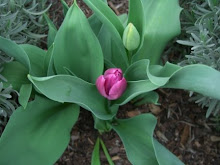"...And, like that, I'm back in that valley with its broken-combed mountain tops and the wolves at night and the ever-present feeling that the world is so much bigger than you, and my mind becomes a jumble of associations, of aunts and a round table and laughter you can't hear anymore, and I am overcome by a feeling of loss. It is, I concluded, a side effect of this kind of food, one that's handed down from one generation to another, often in conditions of adversity, that you end up thinking of the dead, that the very stuff that sustains you somehow tastes of mortality."
Bill Buford, Heat
Bill Buford, Heat
Last week Mike and I took a long-awaited beach vacation, and it went exactly as planned: we dutifully took the elevator from our seventh-floor condo to the beach, where we sat in reserved beach chairs and read books all day. (OK, I also did a lot of staring, mostly in grandma mode: from behind my sunglasses, I disapproved of every skimpy bikini, every instance of bad parenting, and every tipsy kite-flyer within my line of vision.)
So, as you can imagine, my reading list was of utmost importance. I began obsessing about it two weeks before vacation and walked out of Carnegie Library Main with a ridiculously large stack of books. I could barely see over them as I walked to the car. If you'd run into me that day, scattering the books across the sidewalk, you would have noticed a few typical beach reads in the pile: novels from a bestselling author published in the last year or two. You also would have found a non-fiction work by Bill Buford, former fiction editor at the New Yorker, called Heat (An amateur's adventures as kitchen slave, line cook, pasta-maker, and apprentice to a Dante-quoting butcher in Tuscany). This meandering but engrossing account of Buford's time spent in the New York restaurant industry and at the mercy of Mario Batali, an acclaimed chef, is actually about the central role food plays in our lives--for some, to the point of obsession. Because of this, Heat was my favorite vacation read.
To explain why, I need to provide some background info. As I've already mentioned in a previous post or two, I come from a family obsessed with food. My dad's family, Sicilian immigrants from a small coastal village called Real Monte (you can see the African coast while standing on the beach on a clear day), quite literally regarded food as THE essential element of spiritual and social life. My Nono made his living at a meat factory, then came home and cultivated his extensive and meticulously planned garden. My Nona spent her days turning the vegetables he grew into delicious recipes that she had inherited from generations of women in her family. Neither of them (or anyone they knew) EVER had an important conversation without food present; similarly, food (its quality and portion size) was the main way they decided whom to befriend: if a paisan fixed a lackluster meal, or failed to offer a suitable abundance of sweets during a quick visit, they were blacklisted. Period.
So, it's no surprise that I related to my dad's parents mainly through the medium of food. We could never understand each other very well (they spoke very little English; I spoke very little Italian), but food and its preparation became an alternate language. Nono walked me through his garden, pointing with pride to young cucumber that I was allowed to pick early and eat whole. Nona let me help stuff ravioli with cheese, beef, and peas, and flip veal cutlets sizzling in olive oil while she supervised. I was allowed to taste the pasta to determine if it should be cooked longer (she never used a timer).
It was a family tragedy that I refused to eat red sauce for the first twelve years of my life. Nona and Nono both averted their eyes, seemingly in pain, when I covered my spaghetti with butter and cheese, but at other times they would study me covertly, as if trying to figure out the mystery of a blood relation who willfully rejected the family tomato sauce. "Americana," Nono would murmur, shrugging and seeking comfort in the garden.
My palate, at that age, had been formed by my mom's side of the family, English, Irish, and Dutch in nationality. At DeWitt family meals I could eat American comfort food at its finest: buttery mashed potatoes, deviled eggs, cheeseburgers. With my grandmother, a former home-ec teacher, I made snickerdoodle cookies and apple pie; I fried crumbled hamburger for mild chili; I learned how to use somewhat uncommon kitchen tools such as a flour sifter, and I was instructed in the details of competent cooking: always crack your eggs into a separate bowl before frying them! Always use a knife to level off a cup measure of flour! (I complied while she was watching, but when she left the room the details were totally lost on me.)
My parents, while from these very different backgrounds, met and fell in love because of food. My dad took my mom on a date to a steakhouse with a buffet salad bar, and she (a 115-lb model at the time) ate him under the table. He fell in love with her appetite; she fell in love with him because he was willing to satisfy it. To this very day, nothing makes my mom happier than an all-you-can eat menu.
All of this to say, an (unhealthy?) obsession with food is embedded in my DNA. Reading Heat, particularly the passage quoted above, helped me to understand the role that food has played--and continues to play--in my life. Even when I couldn't talk to my dad about anything important (which was most of the time), we could still talk about his sauce, and how he'd adapted it from his mother's recipe (he added onions). When I don't want to tell my mom about my bad day, I can describe--in great detail--the meal I made last night, and she is enthralled.
In this way, food does become a sort of alternate language, one that gives a new perspective to memory, one that reveals unspoken truths about identity. Food can be like memoir.






4 comments:
Yeah, I memoir the time you ate all of the food in my apartment. So embarrassing Marianne!
I love the way you explained how your parents fell in love. It's so to-the-point and uncomplicated. A+
Nice memoir joke. I remember the many times I've eaten more than is polite. At least I can blame my parents for this and many other bad behaviors.
I took food as a second language back in high school but I've forgotten most of it.
Turnip Asparagus um... Potato
(That's food for "very interesting story", right?)
No, actually, you just said something highly offensive that I am too delicate to translate.
Post a Comment